日本語情報
基本情報
氏名
中島 直久氏名よみがな(教員一覧並び順決定時のみ利用)
なかしまなおひさ職階
助教学位
博士(農学)資格
技術士補, 測量士補学歴・職歴
2009年 九州大学農学部生物資源環境学科 卒業2011年 九州大学大学院 生物資源環境科学府生産環境科学専攻 博士前期課程修了
2011-2013年 日本工営株式会社 技術士
2019年 東京農工大学大学院 連合農学研究科農業環境工学専攻 博士後期課程修了
2019-2021年 北海道大学大学院農学研究院 博士研究員
2021年- 現職
自己紹介
福岡出身です。エンジニア系の研究や仕事に従事していきましたが、仕事をやめて生態工学に関する研究で学位を取りました。農業土木技術にかかわりながら、農地や農村社会に生息する生き物たちを追いかけて研究しています。
写真1
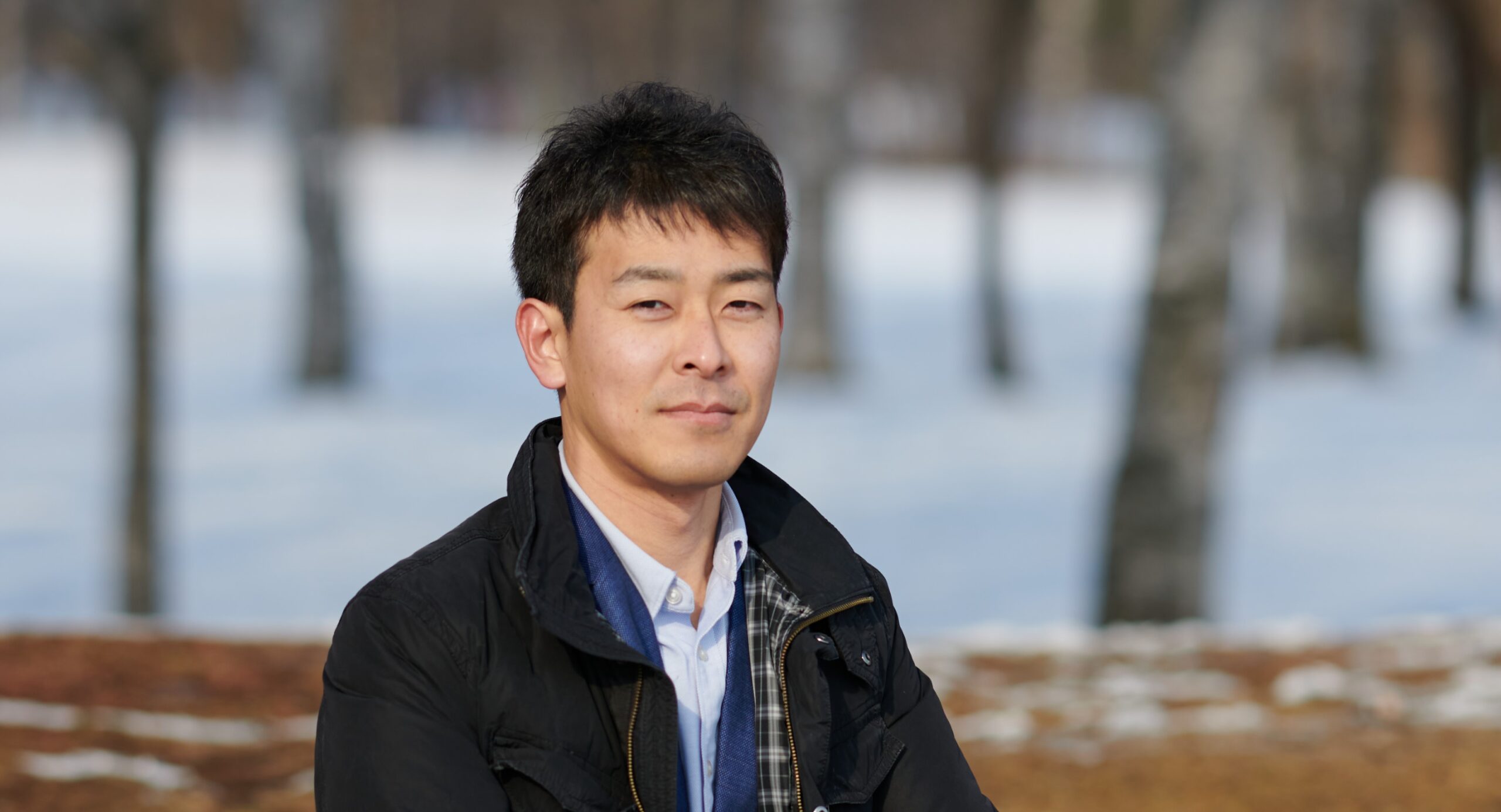
写真2

備考
連絡先
電話番号
0155-49-5520FAX番号
メールアドレス
nnakashima@obihiro.ac.jp居室
居室のある建物
総合研究棟I号館部屋番号
N1302-6部屋番号をウェブサイトに掲載希望
はい学部(ユニット)
所属ユニット
農業環境工学ユニット大学院(専攻・コース)
所属専攻・コース
畜産科学専攻/農業環境工学コース所属・担当
所属
研究域/環境農学研究部門/農業環境工学分野/農業環境工学系リンク
研究室(名称)
生態工学研究室研究室(ウェブサイトURL)
http://nak-eco-eng.com/Researchmap
https://researchmap.jp/naonak研究業績・特許(J-GLOBAL)
https://jglobal.jst.go.jp/detail?JGLOBAL_ID=201901008809354128研究シーズ : https://www.obihiro.ac.jp/facility/crcenter/seeds/43119
研究紹介
My Dream
豊かな自然や生態系と共存する強い農業農村の実現研究テーマ
工学的なアプローチを用いて人間活動と生態系の関係を理解する研究分野
生態工学, リモートセンシング, スマート農業キーワード
両生爬虫類, 外来種, 水田生態系, 生息分布モデル, 市民科学, 機械学習・深層学習, スペクトル解析, 光合成研究紹介
日本の生態系は世界的にも生物多様性のホットスポットとして知られています。その豊かな日本の生態系を支えているのは、先達が作り守ってきた農村・農地環境です。原生自然のままではなく、人の手が加わることで豊穣な生態系を作り出し、そこに人間の営利活動と動植物生存の均衡が存在しました。
しかし、現在ではかつて共存していた人間と動植物が敵対関係になってしまいました。現場で働く農家や技術者たちには生態系を守るための明確な基準がありません。そこで、生物の生息場を時空間的に再評価する必要があります。
生物の生息と環境の長期間にわたる関係を広域を対象に明らかにします。広域を対象にするためIoT技術やリモートセンシングなど効率的な調査アプローチを用います。長期間を対象にするため市民科学データ等の応用を検討しています。
農村社会を中心にそこで生きている生物の実態を明らかにし、もう一度我々と共存できる道を探る研究を実施していきます。
研究紹介画像(その1)
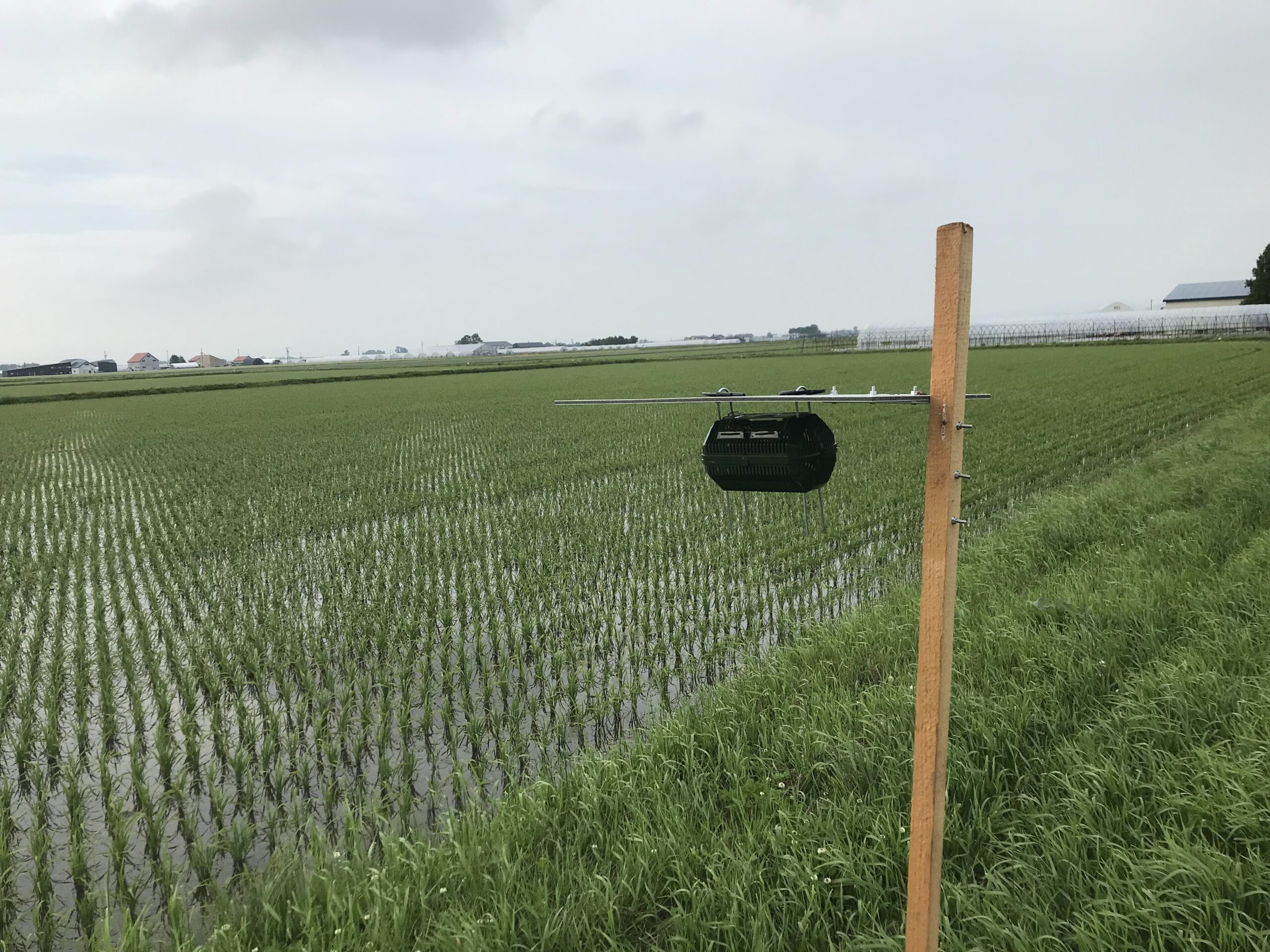
研究紹介画像(その2)
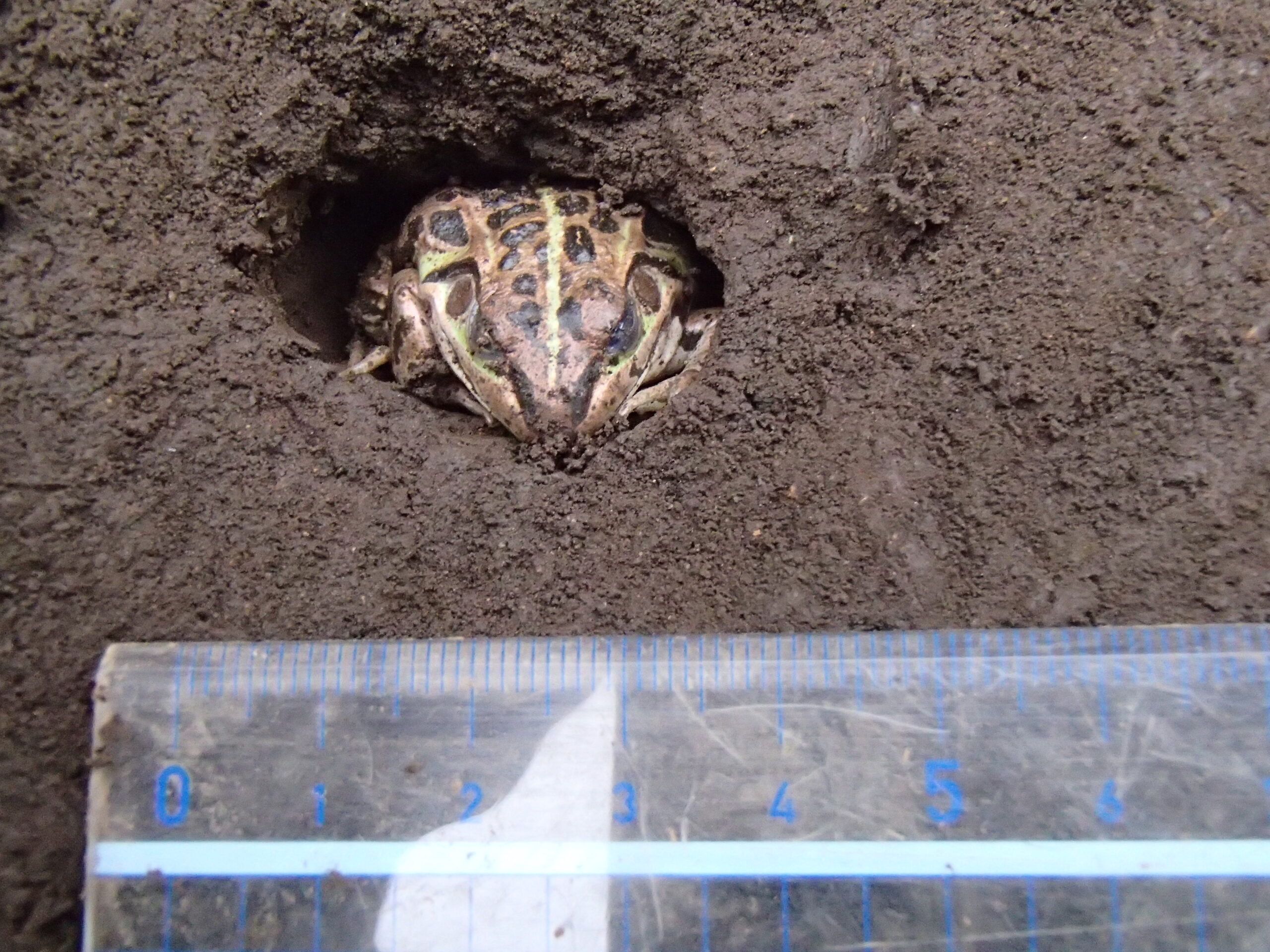
研究紹介画像(その3)

研究紹介画像(その4)
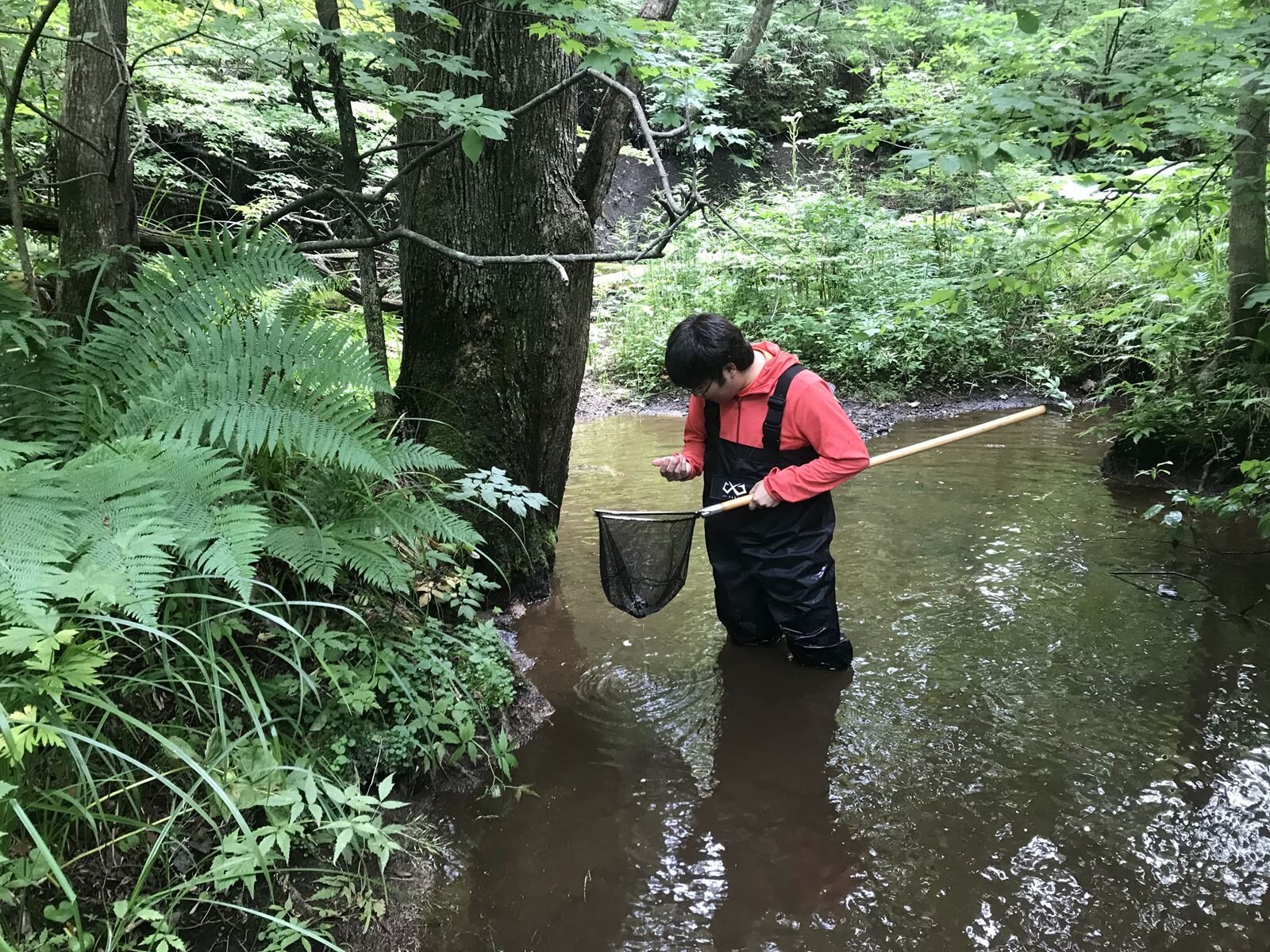
研究紹介画像(その5)
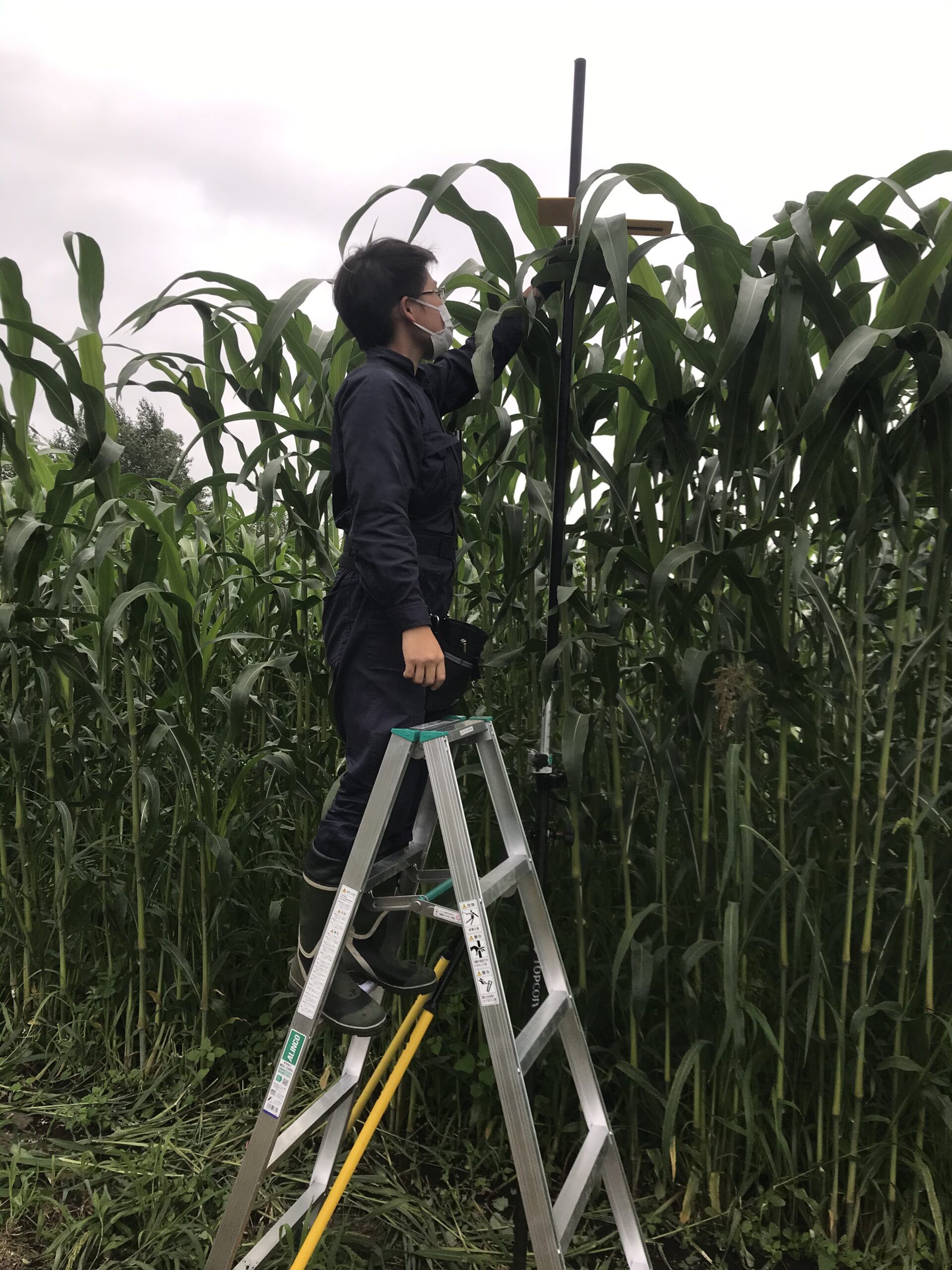
研究紹介画像(その6)
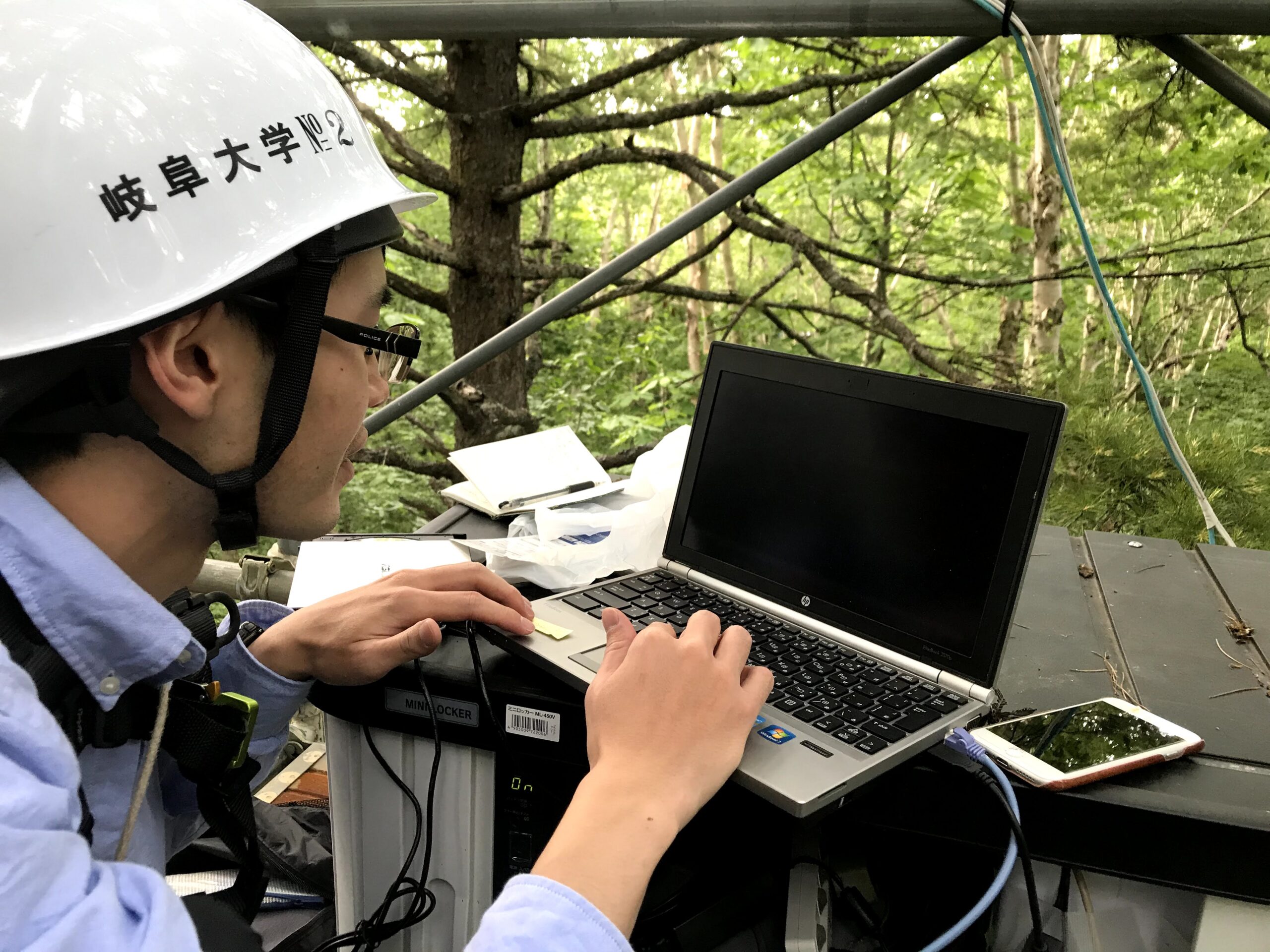
【改良後】現在取り組んでいる研究テーマ一覧
- 深層学習を用いたカエル音声データの自動判別
- 長期にわたる市民データを用いた外来カエルの分布域変動
- キタサンショウウオの生活史の解明
- 江戸期~現代における全国の魚類の分布域再現
- ドローンによる作物表現型の推定
- 長期にわたるクロロフィル蛍光の地上観測
【改良前】現在取り組んでいる研究テーマ一覧
関連産業分野
環境科学, 環境アセスメント, 農業コンサルティング所属学会
農業農村工学会, 応用生態工学会, アメリカ地球物理学連合Editor
Editorial Board
プロジェクト
学部生向け
卒業研究として指導可能なテーマ
- カエル鳴き声のノイズ処理と最適学習法の開発
- 市民科学データを併用した外来カエルの生息分布予測モデリング
- キタサンショウウオの非繁殖期の生活史解明
- 昭和30年代の全国魚類分布のモデリングと江戸期への拡張
- 分校放射計と衛星光学データを用いたクロロフィル蛍光の推定
- ソルガム葉面積指数の推定方法の開発
メッセージ
2021年の5月に着任しました。広大な北海道の地の利を活かして何ができるか挑戦中です。
生き物のフィールド調査は体力・精神共にとても大変です。ほかにも、多くの文献を読んだり、データ解析を延々したりと机上作業も多くこなさなければいけません。しかし,複雑な自然現象が理論やモデルで説明できることを確認できた時の興奮は研究ならではの喜びです。「研究」という営みにどっぷりと浸かれる最後のチャンスかもしれません。ぜひ精一杯やってください。
私の研究室では学生同士の調査の協力が必要不可欠です。他人の調査を手伝うことに積極的な人が合っていると思います。相談事があれば気軽に扉を叩いてください。
スペシャルコンテンツ「ぎゅ牛〜っとちくだい」
カエル : https://www.obihiro.ac.jp/gyugyutto/38095
スペシャルコンテンツ「畜大人インタビュー」
英語情報
基本情報
氏名
NAKASHIMA Naohisa職階
Assistant Professor学位
D.Agr.資格
Professional Engineer trainee, Land Surveyor trainee学歴・職歴
2005-2009 Kyushu Univ. Faculty of Agriculture Bioresource and Bioenvironmental Sciences (Bachelor)2009-2011 Kyushu Univ. Grad.Shool Bioresource and Bioenvironmental Sciences (Master)
2011-2013 Nippon Koei Co., Ltd. (Hydrologist/Hydraulic Engineer)
2016-2019 Tokyo Univ. Agr. & Tech. United Grad. School of Agricultural Science (Ph.D)
2019-2021 Hokkaido Univ. Research Faculty of Agriculture (Post Doctral Fellow)
2021- the present
自己紹介
I hail from Fukuoka and have been engaged in engineering research and work. However, I left my job to pursue a degree in ecological engineering. I'm involved in agricultural civil engineering, and as part of that, I'm researching the wildlife that inhabits our farmlands and rural communities.
備考
居室
居室のある建物
General Research Building I部屋番号
N1302-6部屋番号をウェブサイトに掲載希望
Yes学部(ユニット)
所属ユニット
Agricultural Engineering Program大学院(専攻・コース)
所属専攻・コース
Doctoral and Master's Program of Animal Science and Agriculture/Engineering for Agriculture所属・担当
所属
Research Department/Department of Agro-environmental Science/Division of Environmental and Agricultural Engineering/Section of Environmental and Agricultural Engineeringリンク
研究室(名称)
http://nak-eco-eng.com/研究室(ウェブサイトURL)
https://nnakashima.labby.jp/Researchmap
https://researchmap.jp/naonak?lang=en研究業績・特許(J-GLOBAL)
https://jglobal.jst.go.jp/detail?JGLOBAL_ID=201901008809354128研究紹介
My Dream
Creating robust farming communities in harmony with nature and ecosystems.研究テーマ
Use an engineering approach to understand the relationship between human activities and ecosystems.研究分野
Ecological Engineering, Remote Sensing, Smart Farmingキーワード
Amphibians and Reptiles, Invasive Species, Paddy Field Ecosystem, Species Distribution Model, Citizen Science, Machine Learning & Deep Learning, Spectral Analysis, Photosynthesis研究紹介
Japan's ecosystems are globally recognized as hotspots of biodiversity. The rich ecosystems of Japan are supported by the rural and agricultural environments that our forebears have cultivated and protected. These ecosystems are not just primal nature; they have been enriched by human intervention, creating a balance between human commercial activities and the survival of flora and fauna.
However, the once harmonious coexistence between humans and wildlife has, unfortunately, turned adversarial in many cases. Farmers and engineers working in the field lack clear standards for protecting these ecosystems. Therefore, there is a need to re-evaluate the habitats of living organisms in both space and time.
We aim to clarify the long-term relationship between wildlife habitats and the environment on a broad scale. To cover large areas, we employ efficient survey approaches such as IoT technology and remote sensing. For long-term studies, we are considering the use of citizen science data and other applications.
Focusing on rural communities, we will reveal the reality of the wildlife living there and conduct research to explore once again the path to coexistence with us.
研究紹介画像(その1)

研究紹介画像(その2)

研究紹介画像(その3)

研究紹介画像(その4)

研究紹介画像(その5)

研究紹介画像(その6)

現在取り組んでいる研究テーマ一覧
- Automatic discrimination of frog vocalizations using deep learning
- Distribution range shifts of invasive frogs over long-term citizen data
- Elucidation of the life history of the Siberian salamander
- Reconstruction of national fish distribution from the Edo period to the present
- Estimation of crop phenotypes by drone
- Long-term ground observation of chlorophyll fluorescence
関連産業分野
Environmental Science, Environmental Assessment, Agricultural Consulting所属学会
The Japanese Society of Irrigation, Drainage and Rural Engineering, Ecology and Civil Engineering Society, The Ecological Society of Japan, American Geophysical UnionEditor
Editorial Board